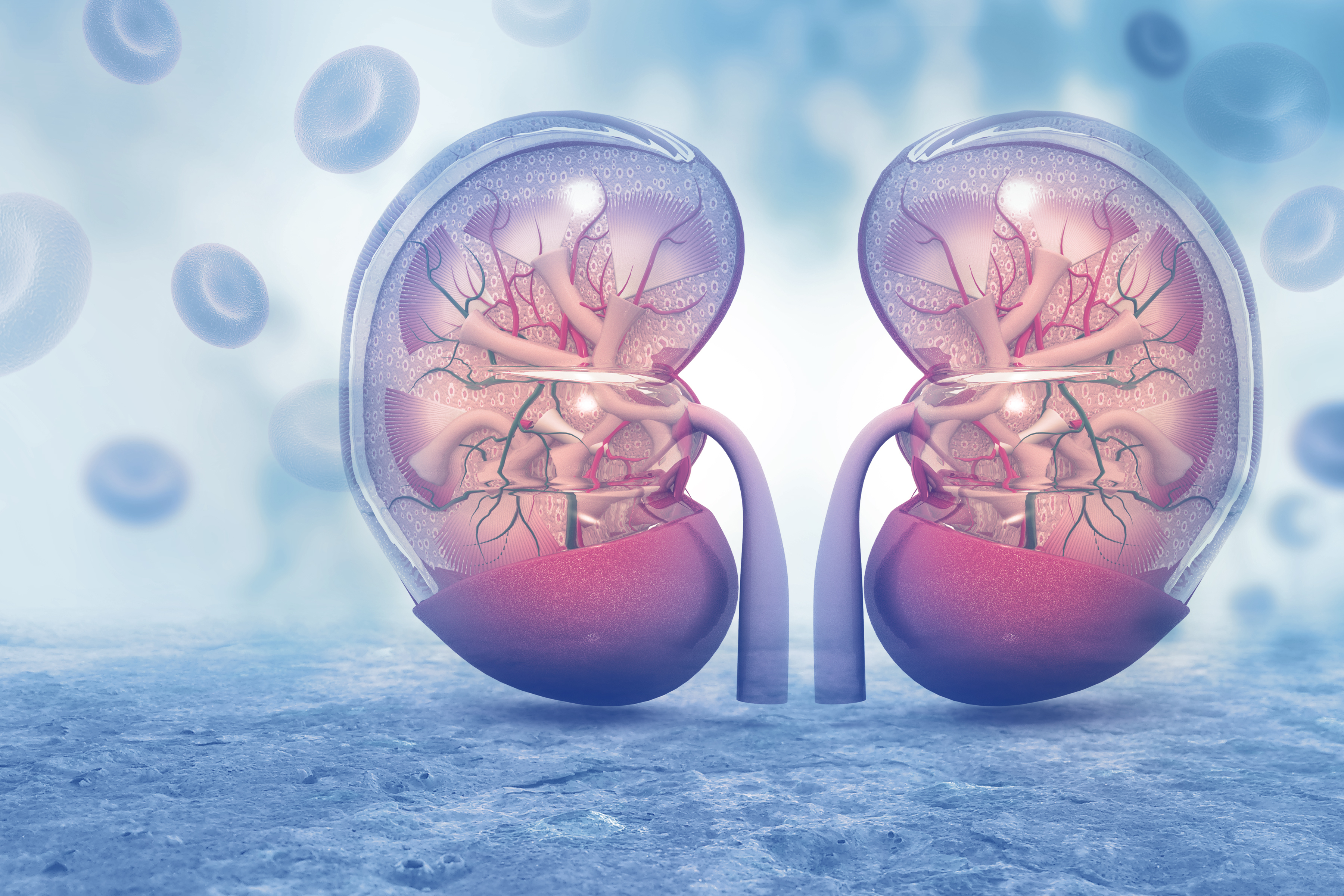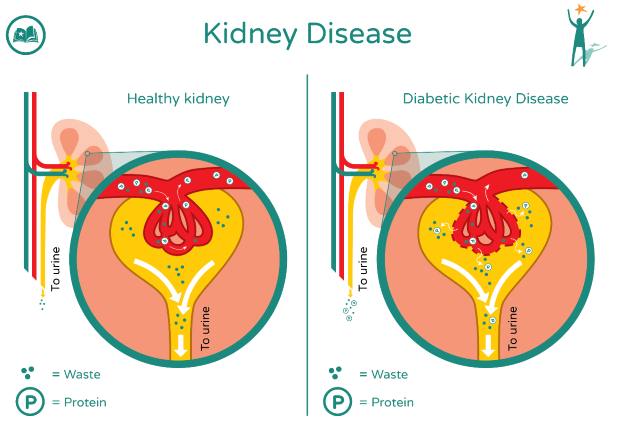Diabetes and kidneys

The kidneys are the body’s filters, and they help eliminate waste products from the body.
High levels of blood glucose levels over a prolonged time can cause damage to the kidneys. The kidney’s filtering process can become leaky, and over time kidney function can decline, leading to a build-up of waste products.

People with diabetes are recommended to have annual check-ups to detect the early changes associated with kidney damage. At these check-ups a urine test, a blood test and blood pressure check are done.
The urine test is to look for protein; there should normally be none present, as the kidneys filter does not allow it through. However, patients with diabetic nephropathy have a leaky filtering system and protein is then found in the urine.
The blood test is to look for waste products in the blood that should not be present if the kidneys are doing their job correctly. Blood pressure should also be monitored as increased blood pressure can aggravate and accelerate further damage to the kidney. These tests combined aim to pick up any kidney problem at an early stage.
There are 4 factors that you can change prevent or slow down the progression of diabetic kidney disease:
- Improving diabetes control,
- Controlling blood pressure,
- Aiming for a healthy weight,
- Stopping smoking if you are a smoker.
Good blood glucose levels and blood pressure control will slow any further deterioration in your kidney function. Sometimes a tablet called an ACE inhibitor or an Angiotensin Receptor Blocker (drugs with names ending in ‘opril or ‘sartan) may be prescribed to protect the kidney.
Occasionally further kidney decline can occur and although very rare, diabetes is still, unfortunately, the leading cause of kidney dialysis and transplantation.



Leave a Reply
You must be logged in to post a comment.